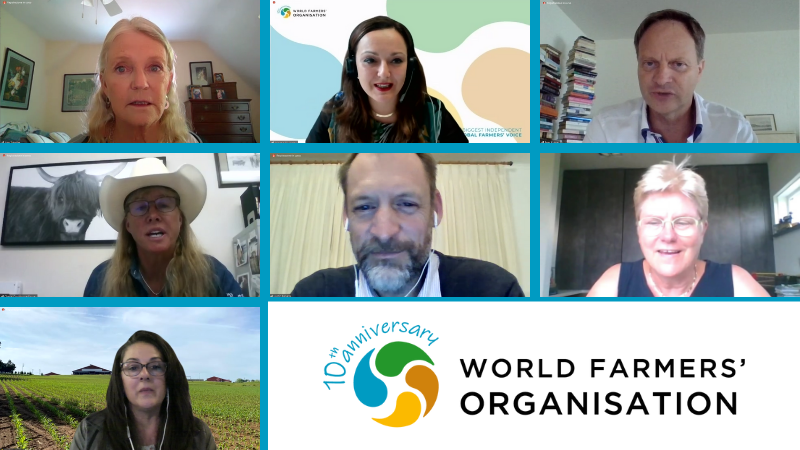“Food Systems must be inclusive, farmer-driven, solution-based and science-routed. These are the principles that are moving us. When it comes to livestock, these principles make livestock fundamental to the future’s sustainable food systems. Farmers are here to say that we can surely improve: there is always space for doing better, but livestock is a fundamental component of our diet. WFO intends to let the farmers’ voices be heard and to match this with science”. With these words, the Secretary General of the World Farmers’ Organisation (WFO), Arianna Giuliodori, welcomed the over 150 participants that on July 27 joined the WFO webinar “Sustainable Food Systems: Livestock Matters!”.
Organised on the UN Food Systems Pre-Summit, the event focused on livestock farming as a pivotal solution for sustainable food systems.
Livestock production systems hold a great and still untapped potential in fostering soil health, soil fertility, biodiversity, and increased carbon sequestration. Moreover, there is a need for increasing animal-based protein supply for a more balanced dietary pathway in most developing areas of the world. Innovative and nature-positive approaches to livestock management already exist, providing valuable solutions.
Moderated by Ann Tutwiler, Senior Advisor, Just Rural Transition and Senior Fellow, Meridian Institute, the event featured the participation as panellists of Peer Ederer, Member, Scientific Council, World Farmers’ Organisation; Cherie Copithorne-Barnes, Beef rancher, CEO, CL Ranches Ltd and Chair, Canadian Roundtable for Sustainable Beef; Justin Benade, Poultry and egg producer and CEO, EthioChicken; Annechien ten Have, Pork Family Farmer in the Netherlands, Dutch agri-entrepreneur of the Year 2019; Marilyn Hershey, Dairy Farmer, Chair, Dairy Management Inc., and Director, United Dairy Industry Association.
Peer Ederer pointed out the four levers of change for securing nutritious, sustainable, and economically viable food: 1. Diversity of livestock and production systems: 2. Innovation; 3. Improved accounting systems; 4. National Road Maps and Strategies.
Cheri Copithorne-Barnes proved that livestock and wildlife can co-exist and produce environmentally sound, socially responsible beef and deliver it to the consumer as sustainable if we manage our ecosystem correctly.
Justin Benade shared with the audience how smallholders in Ethiopia have produced more meat and eggs for their communities by using the correct breed, showing the importance of genetics and choosing the right breed for your production system.
Annechien ten Have gave a virtual tour of her farm and her sustainable farming approach to ensure a better life for pigs and better taste in the product, proving that sustainable production is possible on a commercial scale.
Marilyn Hershey reminded us that the key to sustainable production lies in managing a production system to ensure water, soil and air quality remain whilst producing a nutritious end product for our people and our planet.
At the end of the session, during her closing remarks, Ann Tutwiler reiterated the relevance of working together to ensure all solutions are environmentally, socially and economically viable.
